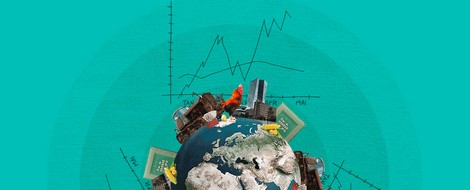Your podcast discovery platform
Curious minds select the most fascinating podcasts from around the world. Discover hand-piqd audio recommendations on your favorite topics.

piqer for: Boom and bust Globalization and politics Global finds
Associate Professor of Economics at George Mason University and currently a National Fellow at the Hoover Institution, Stanford. Educated at Oxford, Mark's main interests lie in economic history and comparative development. He is currently writing a book (with Noel Johnson) on the origins of religious freedom in western Europe. He has also published papers on state formation in Europe and China, weather shocks and pogroms in the middle ages, and private policing in 19th century England. More details about his research can be found on his webpage. He also blogs at Medium and Notes on Liberty.
U.S. Can't Count On Winning A Trade War With China
Economists favor free trade. All of the elite economists surveyed by the IGM thought that new US tariffs on steel and aluminum would be a bad idea (http://www.igmchicago.org/surveys/steel-and-aluminum-tariffs). This professional consensus exists despite evidence that globalization has impacted US workers more negatively than previously supposed (here) and despite theoretical work that provides justifications for an activist trade policy (here).
In this piece, Noah Smith works through some of the reasons why Trump's new round of tariffs is likely to backfire and why the US is likely to lose a trade war. In particular, he takes on the argument that the threat of tough trade barriers can be used to induce China to liberalize its own trade policy.
At the very least, this is a highly risky strategy. And it is one that imposes high costs on American firms and consumers. The number of firms which rely on imports from China for input into their production processes, outweigh the direct beneficiaries of protectionism in industries like steel and aluminum. Moreover, while American firms and workers who lose out from these policies are sure to make their voice heard, China remains a one-party state. Hence, it is likely that "the autocratic Xi is probably able to endure economic pain much longer than the democratically elected leaders of the U.S."
